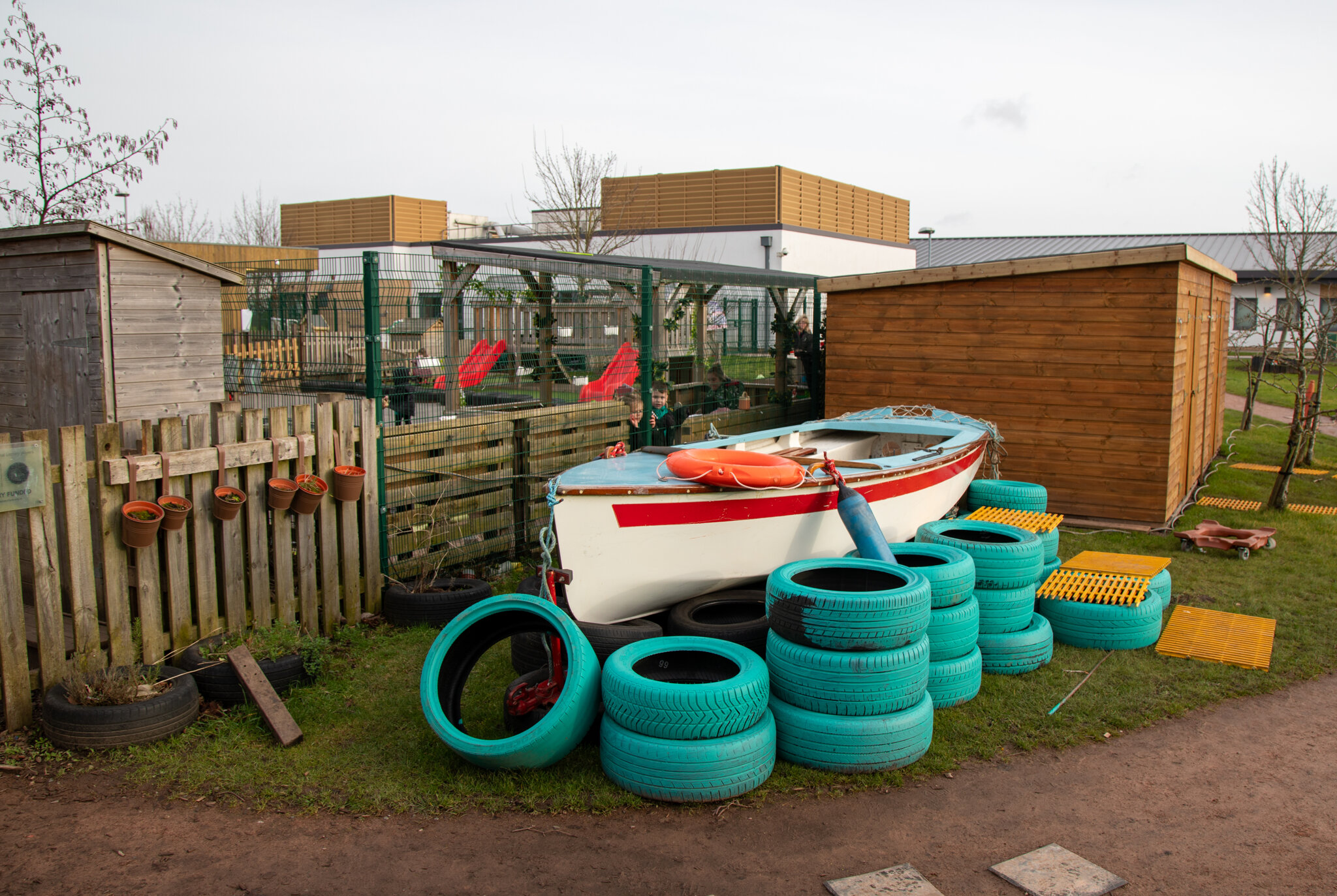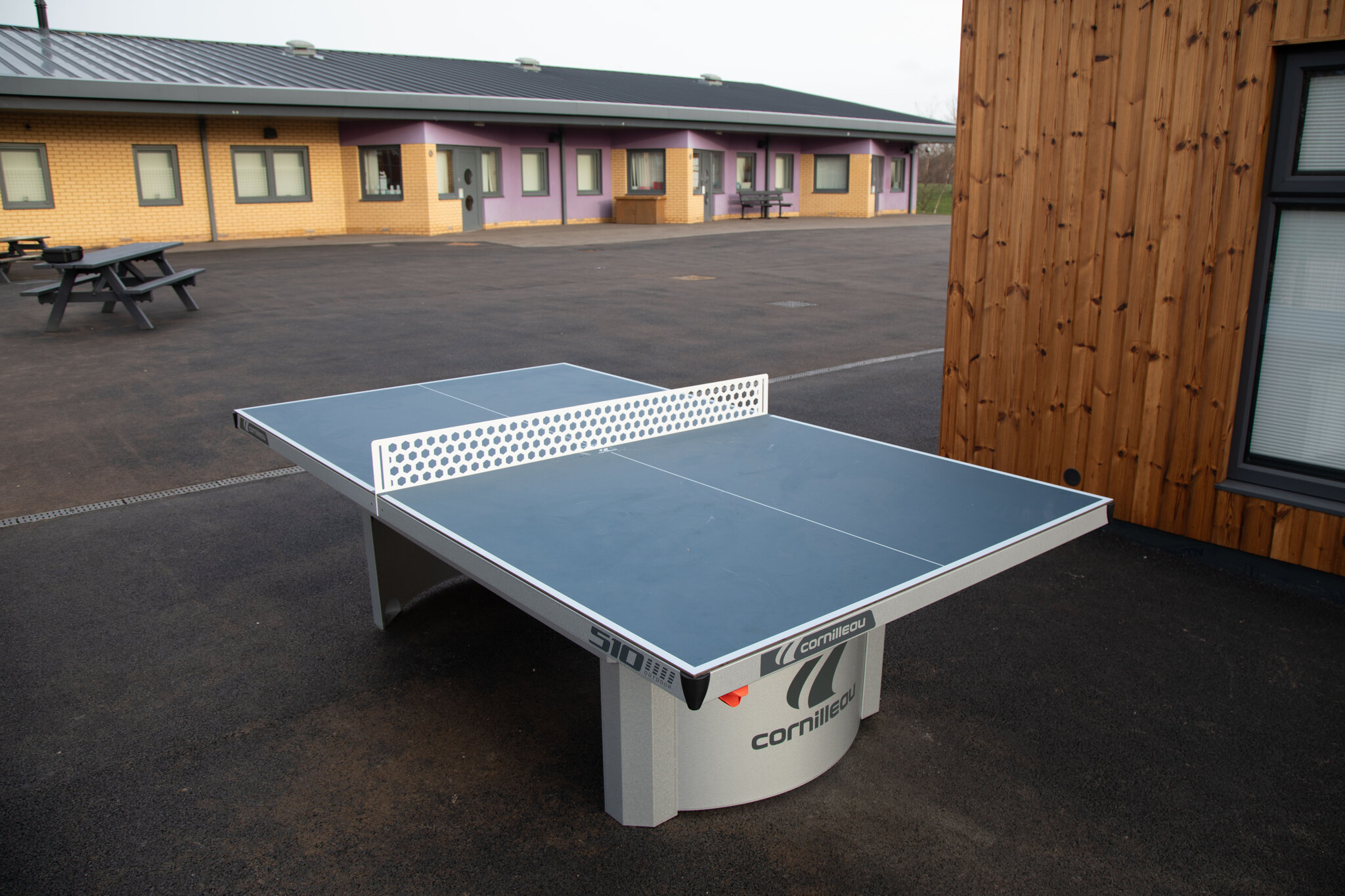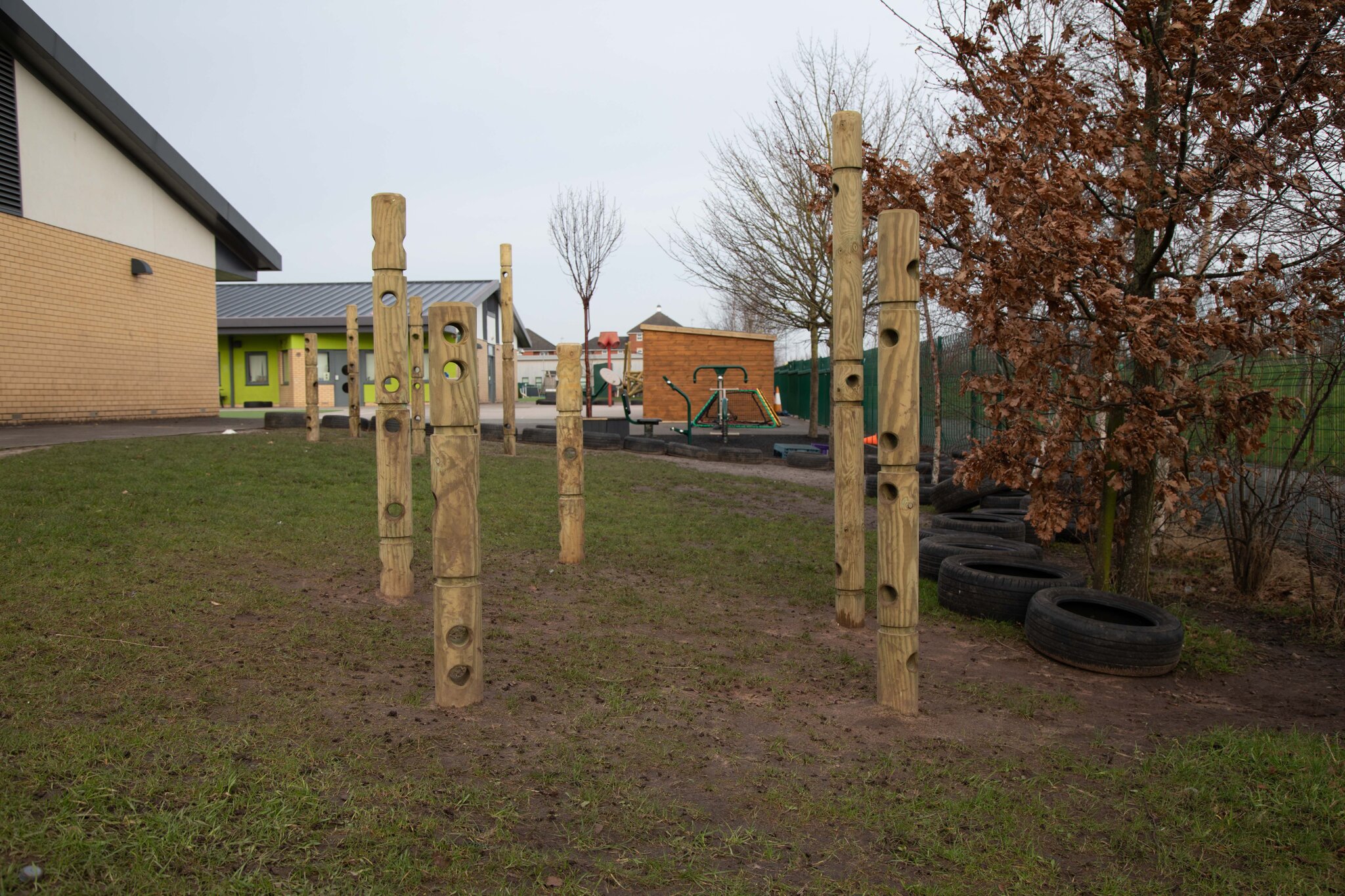Outdoor Play and Learning (OPAL)
At Chapelford Village Primary School, playtime is not a break from learning but a vital part of our educational philosophy. We have re-evaluated the way in which we approach play times and to commit to and demonstrate our understanding of the value of high-quality playtimes for all children and we are proud of our Outdoor Play and Learning (OPAL) project – a transformative initiative that has redefined the way we approach play at our school.
Research has shown that schools that have introduced measures to improve playtimes consistently report happier playtimes with fewer incidents, making them easier to supervise; quicker and better settling into class after playtimes; better attention and on-task behaviour in class; and positive parent reactions.
We have reviewed the demographic of our children and we understand that childhood has changed. We can no longer assume that any child is able to experience full and rich play opportunities outside of school. We recognise that this is so important for the children of Chapelford and with our diverse pupil demographic and the evolving landscape of childhood, influenced by technology it has prompted us to invest in the OPAL project. By working with OPAL, we join them in their belief that play teaches children all of the things that need to be learnt but cannot be taught.
At the beginning of our OPAL journey, we prioritised the voices of our children and through Pupil Voice comments we established a benchmark and used our children’s ideas and thoughts into account when acquiring equipment and developing the ground. Our findings concluded that our children value their playtimes and it is an important part of the day to them. They enjoy being able to socialise with other children in their year group and spend time outside. There were children who were extremely enthusiastic about sport, specifically football and basketball, and others who like to embrace imaginative play, such as den building, dancing and putting on shows. We recognise the unique preferences of each child and that is why we have been able to offer zones to offer something for everyone.
The development of our school grounds and play provision has been planned taking pupil voice, staff voice, recommendations from our OPAL mentor and by using some of Dr Bongiorno’s thoughts on the benefits and rewards of high-quality play. Each zone has been planned and equipped with the aim of creating big spaces that are conducive to imaginative play and enable children to develop a range of skills linked to our school values.
We are excited that our playgrounds offer a den building area, a sand pit, a mud kitchen, a sports area, a scooter circuit chill out zone and a water play area.
If you would like to find out more about the power of playtime and top tips for more outdoor play at home, then click here.
"10 Things Every Parent Should Know About Play "
By Laurel Bongiorno
1. Children learn through their play
Don’t underestimate the value of play. Children learn and develop:
- Cognitive Skills such as math and problem solving in a pretend grocery store
- Physical Abilities such as balancing blocks and running on the playground
- New Vocabulary such as the words they need to play with toy dinosaurs
- Social Skills such as playing together in a pretend car wash
- Literacy Skills such as creating a menu for a pretend restaurant
2. Play is healthy
Play helps children grow strong and healthy. It also counteracts obesity issues facing many children today.
3. Play reduces stress
Play helps your children grow emotionally. It is joyful and provides an outlet for anxiety and stress.
4. Play is more than meets the eye
Play is simple and complex. There are many types of play: symbolic, sociodramatic, functional, and games with rules-–to name just a few. Researchers study play’s many aspects: how children learn through play, how outdoor play impacts children’s health, the effects of screen time on play, to the need for recess in the school day.
5. Make time for play
As parents, you are the biggest supporters of your children’s learning. You can make sure they have as much time to play as possible during the day to promote cognitive, language, physical, social, and emotional development.
6. Play and learning go hand-in-hand
They are not separate activities. They are intertwined. Think about them as a science lecture with a lab. Play is the child’s lab.
7. Play outside
Remember your own outdoor experiences of building forts, playing on the beach, sledding in the winter, or playing with other children in the neighborhood. Make sure your children create outdoor memories too.
8. There’s a lot to learn about play
There’s a lot written on children and play. Here are some NAEYC articles and books about play. David Elkind’s The Power of Play (Da Capo, 2007 reprint) is also a great resource.
9. Trust your own playful instincts
Remember as a child how play just came naturally? Give your children time for play and see all that they are capable of when given the opportunity.
10. Play is a child’s context for learning
Children practice and reinforce their learning in multiple areas during play. It gives them a place and a time for learning that cannot be achieved through completing a worksheet. For example, in playing restaurant, children write and draw menus, set prices, take orders, and make out checks. Play provides rich learning opportunities and leads to children’s success and self-esteem

.JPG)

.JPG)
.JPG)

